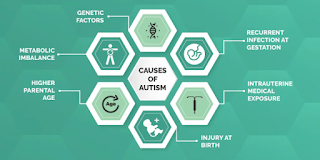Stem cell therapy is a cumbersome process. Patients undergoing therapy must be checked both physically and mentally. The cost of stem cell therapy for autism is determined by a variety of factors, including treatment availability, treatment quality, stem cell types used, overhead costs, and so on. However, expenses are not consistent in the majority of the countries. The cost of stem cell therapy in India is often one-tenth of what it is in the United States and the United Kingdom. Nonetheless, as compared to many other countries, India's treatment is extremely advanced. As a result, India is the most popular location for people seeking low-cost stem cell therapy for autism. A large number of highly competent professionals are accessible in India's various medical institutes and private hospitals.
Best Stem Cell Treatment For Autism In India
Posted by Advancells at 5:15 PMThursday, October 28, 2021
Stem Cell Therapy for Knee Injuries and Arthritis
Posted by Advancells at 5:50 PMWednesday, October 27, 2021
Osteoarthritis is the most common form of chronic joint pain condition, affecting millions of people worldwide. Breakdown and eventual loss of the cartilage of the knee or other joints are the primary features of this condition. Cartilage is a type of protein that acts as a “cushion” between the bones of the joints. Osteoarthritis is partly a result of natural aging of the joint and commonly affects the hands, feet, spine, and large weight-bearing joints, such as the hips and knees.
The symptoms of osteoarthritis include stiffness of the joints, sharp pain which can be for a few minutes or can stretch up to longer durations, tender and weak joints, swelling and loss of mobility in joints and deformities in bones are a few to count.
Can Stem Cell Therapy be Beneficial for Cerebellar Ataxia?
Posted by Advancells at 12:32 PMMonday, October 25, 2021
- Impaired coordination
- Unsteady walk
- Slurred speech
- Uncontrolled eye movements
- Difficulty with fine motor tasks such as eating, writing, picking up objects etc
- Dizziness
What you should know about autism spectrum therapies?
Posted by Advancells at 6:00 PMWednesday, October 13, 2021
People with autism can benefit from a variety of autism spectrum therapies that can help them enhance their skills and alleviate their symptoms. Early intervention, such as during preschool or before, boosts your child's odds of success, but it's never too late to get help. Instead of waiting for a formal diagnosis, you should start exploring therapies as soon as you suspect your child has autism. A formal diagnosis can take quite a long time, many tests, and follow-ups with specialists.
What works for one person may not work for
another. Learn about some of the most popular and effective – Autism spectrum
therapies.
- Occupational Therapy
Occupational therapists work collaboratively
with parents, teachers, and other professionals as part of a team. They aid in
the development of specific goals for autistic individuals. These objectives
frequently involve social interaction, behavior, and academic performance.
Assessment of autistic children and providing therapies accordingly are the two
main motives of occupational
therapy.
- Speech Therapy
Children with ASD may struggle with both verbal
and nonverbal communication. They may also experience difficulties interacting
socially. For these reasons, speech therapy
is an integral part of autism therapy. It assists children in speaking,
communicating, and socializing with others. Nonverbal skills such as making eye
contact, taking turns in a conversation, and using and understanding gestures
can all be involved in speech therapy.
- Applied Behavior Analysis (ABA)
This therapy utilizes benefits to reinforce
positive behaviors and teach new skills. Parents and other caregivers are given
the training to provide autistic children with moment-by-moment feedback. There
are different types of ABA such as Early intensive behavioral intervention
(EIBI), Discrete trial training (DTT), Verbal behavior
intervention (VBI)Verbal behavior intervention (VBI), Pivotal response
treatment (PRT).
- Play Therapy
Children with autism tend to play differently
than other children. They will more likely concentrate on specific pieces of a
toy (such as wheels) rather than the entire toy. They pretend to play in the
same way as other children do. And they might not want to play with other kids.
Many children with autism spectrum
disorder communicate themselves via play; their toys and movements may
become their language. Play can help children with ASD in literacy and connecting with others, both children and adults, in a way
that they understand.
Alternative Autism
Therapy: Stem Cell Therapy
Autism is a strong candidate for stem cell
therapy because there are indications that some types of stem cells, when
administered intravenously, can improve immune system regulation and neural
connections in the brain. Mesenchymal Stem Cells (MSC) are the most common type
of cell used to treat autoimmune diseases and inflammation. MSCs are the most
widely used cell type in regenerative medicine because, in addition to their
ability to cure any type of inflammation, the cells also do not stimulate the
immune system of the patient to detect them as invasive. This has the huge
benefit of allowing a clinic to receive MSC from unrelated donors and use them
as autism spectrum therapy.
COVID-19: Caring for People with Dementia
Posted by Advancells at 1:48 PMTuesday, June 16, 2020

It is 2020 and we are in the month of June. Coming all the way to this mid-year month amidst COVID-19 lockdown, our healthcare providers are to date reminding us that the best way to survive is prevention. The most promising way to evade this pandemic is by slowing the spread of coronavirus infection by preventing transmission risks. Taking about the month of June, we are celebrating the Alzheimer's & Brain Awareness Month to show our purple support for people suffering from Alzheimer’s or other forms of dementia. This is also a great time to appreciate and recognize the caregivers of dementia patients for their support.
It is our duty to protect and pay special attention to the safety of older adults with Alzheimer’s disease and other dementia disorders as it further increases the risk of getting COVID-19 infection. Cognitive impairment in their cases risks self-protection further as a vulnerable person may not understand or realize the risk of the COVID-19 transmission. Not being aware of the symptoms is another hindrance for dementia patients as they might not recognize and relate the symptoms or might forget to mention such symptoms in front of their doctors and caregivers. Therefore it is all the more important for a caregiver to be aware and responsible for people with dementia who might be showing symptomatic or asymptomatic COVID-19 signs. Once infected, patients with dementia-related cognitive limitations can also further contribute to the disease spread.
Tips for Protecting People with Dementia from COVID-19
A person with dementia should not be unnecessarily exposed to public transportation or unnecessary visitors. They should ensure proper hygiene and handwashing along with their caregivers. The caregivers will need to be more cautious and aware regarding the care for themselves and also for the patients, besides maintaining self-quarantine guidelines during the lockdown.
Also, written reminders in different rooms like kitchen and bathroom should be properly maintained to help in reminding people with dementia and cognitive impairment to wash/sanitize their hands with alcohol-based sanitizers to take care and management more effective. It is also very important to stockpile necessary medicines and groceries for an extra month or two to prepare oneself for overcoming shortages in supply. In the case of healthcare settings, the caregivers should focus on availing telemedicine or teleconsultation services for dementia patients as it is risky to attend doctors in person during this pandemic period.
COVID Prevention Tips for Dementia patients:
- Do not bring dementia patients using public transportation.
- Do not allow dementia patients to attend any public gathering.
- Please limit unnecessary visitors or overly-concerned relatives.
- Avail alcohol-based hand sanitizers and written reminders to sanitize hands.
- Follow proper hand-washing and sanitization protocols.
- Please be aware of the transmission risks and anti-COVID guidelines.
- Practice self-quarantine and stock up medicines & food supplies for patients.
- Avail telemedicine appointments for the patients.







